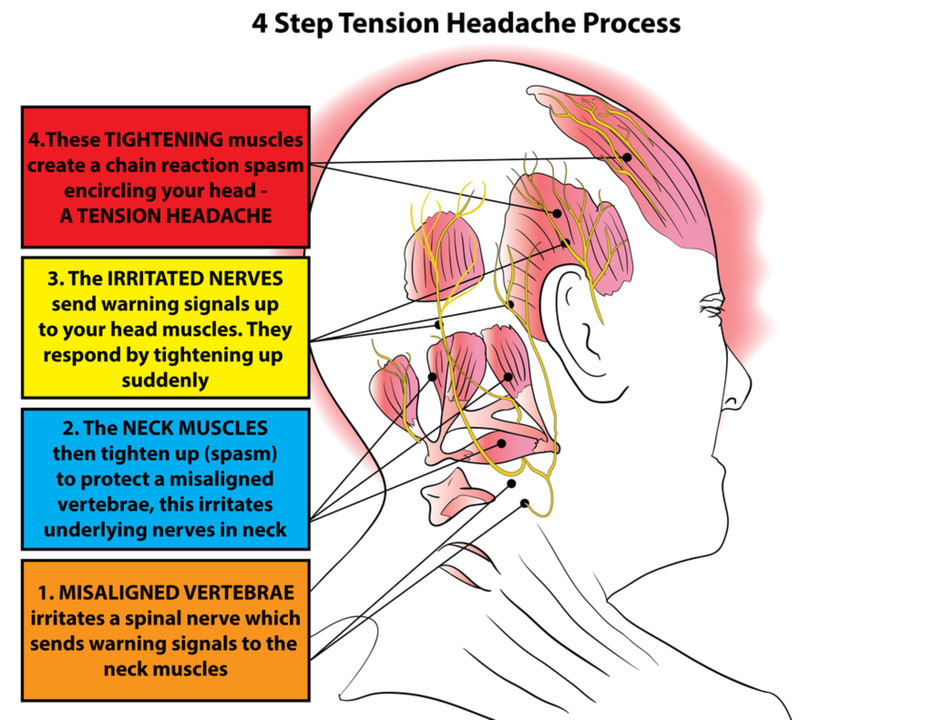Headaches Related To Neck Pain

Why Does My Neck Pain Cause Headaches?
Understanding how these headaches are connected to neck pain makes it easier to treat the problem. It should be no surprise that a pain in the neck can also cause a headache because the neck and head are closely related. The connection between the two depends largely on the cause of your neck pain and the type of headaches you experience.
How Headaches and Neck Pain Are Related?
Wondering why your neck pain is giving you headache? Headaches happen for many different reasons. Sometimes, a headache will affect other areas of the body, such as the upper spine, or cervical region. In some cases, muscles located at the base of the skull and the top of the neck contribute to headache pain.
Types of Headaches Caused by Neck Pain?
Neck pain is often associated with several different types of headaches. A headache due to neck pain might be one of the following:
- Cervicogenic Headache: It’s a pain in the neck and it leads to a dull, aching pain on one side of the head. The pain might start at the bottom of your skull and feel as if it is traveling up one side of the head.
- Occipital Neuralgia: Is a condition in which the occipital nerves are injured or inflamed. An injury to the neck, tightness of neck muscles and cause a pinched nerve. This causes headaches that feel like severe piercing, throbbing or shock-like pain in the upper neck, back of the head or behind the ears.
- Migraines: Migraines are another common headache type and almost 80% of the people with migraine will have neck pain. Migraines typically cause throbbing pain on one side of the head and might be in the neck, too.
- Tension Headaches: The suboccipital muscles found in the neck often become inflamed and tender. You may feel dull pain, tightness, or pressure that can feel like squeezing your skull. The pain is usually all over the head, not just one side or the other. You also might feel pain over back of neck and shoulder.

How To Relieve Headaches From Neck Pain?
- Workplace Ergonomics - How you sit at work can put strain and pressure on your neck.
- Posture - If you regularly slouch, you put a lot of extra weight on the head and neck.
- Sleep - Change your sleep position and support the head and neck as you sleep.
- Exercise - Choose low intensity activities that focus on calming the body, such as gentle stretching.
- Massage – It can help relax the neck area muscles and also reduce muscle strain and tension.
- Stress - Practicing relaxation techniques, such as deep breathing, massage and exercise.
- Cryotherapy - Applying a cold compress or ice pack to your head to get relief.
Aug 08,2024
